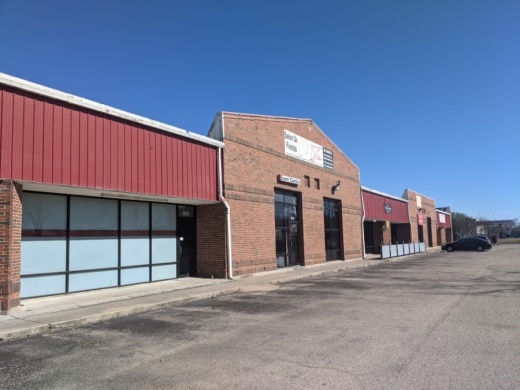Local nonprofit group Caritas of Austin is working alongside Missouri-based development firm Vecino Group to redevelop a 2-acre property at 1934 Rutland Drive into 171 studio units. The 95,471-square-foot development will have dozens of units dedicated to serving Austin’s chronically homeless residents—people who have experienced homelessness for longer than a year or experienced homelessness four or more times in the last three years—according to Caritas of Austin President and CEO Jo Kathryn Quinn.
“We will have a set aside of 43 units for the chronically homeless. The rest will be open for people who have been homeless for a much shorter period of time,” Quinn said at a Jan. 21 North Austin Civic Association meeting.
The Austin Housing Finance Corp., a public nonprofit under the purview of the city of Austin, will serve as a public partner on this development, known as Espero Austin at Rutland. According to city staff from the Austin Housing and Planning Department, the AHFC will own the land and lease it to Caritas and Vecino. Caritas will provide services to residents living at the property, and Vecino will oversee development of the site.
“[The city of Austin is] also providing rental assistance,” Quinn said.
The AHFC approved $8.5 million in Rental Housing Development Assistance funds for the acquisition and construction of the development, according to the Austin Housing and Planning Department. Of that pool of funds, $3 million comes from the Austin Housing Trust Fund and $5.5 million from the city’s 2018 General Obligation Fund.
Before redevelopment can begin on the property, the project needs approval on an application for a Non-Competitive 4% Housing Tax Credit from the Texas Department of Housing and Community Affairs. Per the TDHCA’s website, the tax credit provides “a source of equity financing for the development of affordable housing.” Developers of affordable housing properties can use this tax credit for a reduction of federal income tax liability.
The project’s application for that tax credit will be deliberated at the TDCHA board meeting in March, Quinn said.
Permits filed with the city of Austin show all units at Espero will serve residents who make 60% or below of the median family income. According to the city of Austin’s Neighborhood Housing and Community Development Office, the 60% MFI limit for a single-person household in Travis County is currently $41,000 annually.
The majority of residents at the future development will earn less than that annually. According to city permit documents, 84% of Espero’s units will serve residents making 50% or 30% of the area MFI.
“We’ll be using project-based vouchers for people who can’t pay their full rent,” Quinn said Jan. 21. “We will be targeting people experiencing homelessness who live in the community.”
The Austin Housing and Planning Department said 101 of the total 171 units will ultimately go to help house people experiencing homelessness who have been through an eligibility process administered by local nonprofit Ending Community Homelessness Coalition.
Development details
Espero Austin at Rutland will offer efficiency studio apartments that come fully furnished and equipped with kitchens in a four-story building, city documents show.
The development will add approximately 60 parking spaces for staff and residents. Heather Bradley-Geary, director of supportive housing at Vecino, said the partnership anticipates most of the residents will rely on public transit for transportation needs. Stops for two MetroBus routes—the 142 Metric Flyer route and the 325 Metric/Rundberg route—are located within a quarter mile from the site of Espero Austin at Rutland.
“We’ve done a study of who will need parking. Most people will not have cars,” Bradley-Geary said at the Jan. 21 NACA meeting.
Quinn said Caritas will provide support services on-site for residents, and staff will be on-site at all hours every day of the week. Some of the staff on-site at Espero Austin at Rutland will include professional social workers, Quinn said, with a 1-to-12 staff-to-client ratio of the development’s chronically homeless residents.
Under its current timeline, redevelopment of the Espero Austin at Rutland project is set to begin in early summer, according to Bradley-Geary. Construction would wrap by the end of summer 2022, and Bradley-Geary said the building would likely be leased out within 90 days of opening for applications.
“We know that the need exists in the community, so I anticipate filling leases pretty quickly,” Bradley-Geary said.





